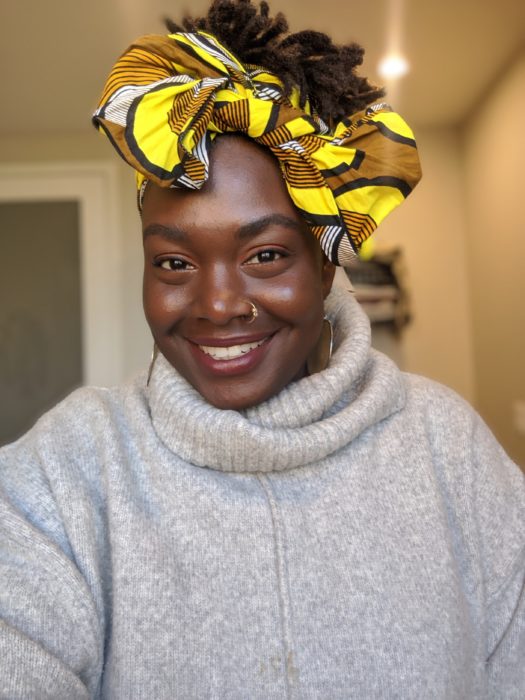How did you get into this work? Why did you get into this work?
I became politicized in the work of sustainability/food justice/agriculture through my work with the farm Brother Nature Produce, D-Town Farm, and the Detroit Black Community Food Security Network, all in Detroit. Understanding the political history and contemporary realities of this work was important to me in strategizing for an equitable, humane, just, and ecologically sound future.
What does ‘solidarity economy’ mean to you?
A solidarity economy is the equitable flow of capital and other resources between people, companies & organizations, and the environment. It is collaboration and exchange. It is those with more need and less resources receiving from those who have excess for the benefit of aligned communities and visions.
What are the biggest challenges you face in this work?
This work requires trust, patience, empathy, and listening to one another to really work. As many of us have been socialized into a capitalist way of thinking, we have to work to overcome damaging, dominant ideas of competition and scarcity.
Why do you think it is important for cooperatives and solidarity economy groups to help each other?
Our individual liberation (this differs from accessing personal freedoms) is bound up in collective liberation. We cannot move forward in this if we are competing for the the same small buckets of funding. Collaborating on work and receiving funds together, for example, helps advance our shared goals and build stronger bonds amongst ourselves.
What is your ‘theory of change’?
Change is cumulative; each connection is connected like a web, influencing transformation. Investing our time and energy in learning the depth of the people and ecosystems we are apart of will help us to relate to one another in symbiotic ways. This symbiosis, I believe, brings us closer to fuller, freer lives and contributes to liberation.
What are some of your current projects?
I am currently the Board President of the Brooklyn-Queens Land Trust (BQLT) and writing a series of essays on Gullah-Geechee foodways.
Where can we find more information about the work you are doing in the future? What is the best way for people to get involved and support your work?
You can support the work of land conservation for majority POC communities in Brooklyn and Queens by donating to BQLT at https://bqlt.org/donate or Venmo at @BQLTgardens. Please follow our work at bqlt.org and on IG at @brooklynqueenslandtrust. If you are interested in joining a garden, please check out our map and contact info for the 36 gardens we steward. For my own work, you can follow me on Instagram at @africanherbsmaam.

